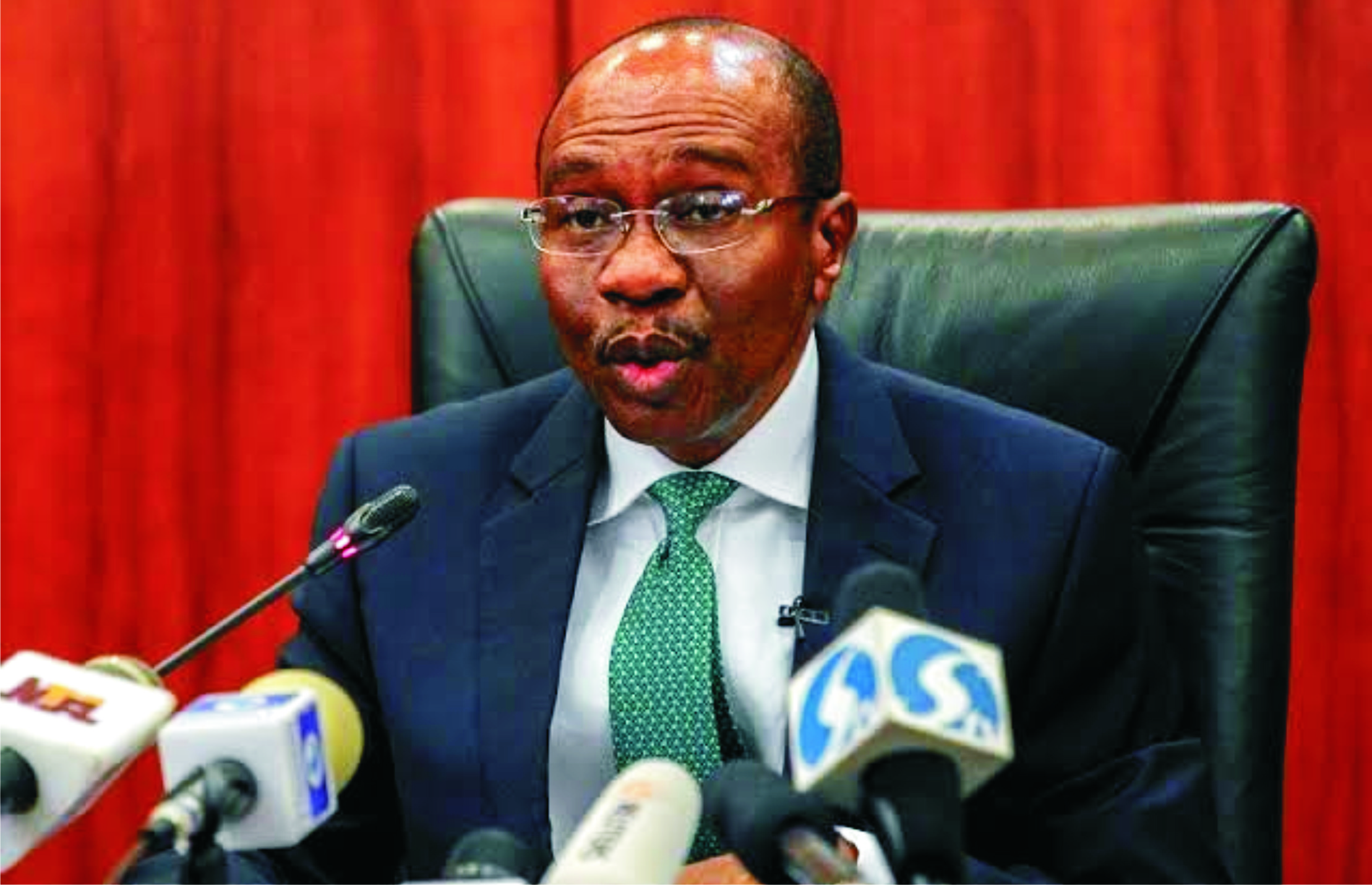Business
Excessive Borrowing From CBN Threatens Exchange Rate, Others – Report

Excessive and continuous borrowing from the Central Bank of Nigeria (CBN), by the Federal Government through the Means and Ways Advances window can have adverse effects on the apex bank’s monetary policy, and subsequently harm domestic prices and exchange rates.
This was disclosed in the recent monetary policy category of the CBN’s Frequently Asked Questions page.
Under the sub-section, titled ‘Can the Federal Government frustrate the Central Bank of Nigerian from pursuing its monetary policy?’, it was stated that there were certain distortions or surges in the monetary base due to the CBN’s financing deficits.
“Yes, when the Federal Government exceeds its revenue, the CBN finance government deficit through Ways and Means Advances subject (in some cases) to the limits set in the existing regulations, which are sometimes disregarded by the Federal Government.
“The direct consequences of the central bank’s financing of deficits are distortions or surges in monetary base, leading to adverse effect on domestic prices and exchange rates, i.e macroeconomic instability, because of excess liquidity that has been injected into the economy”, the response report explains.
Ways and Means Advances is a loan facility by the apex bank to finance the government during temporary budget shortfalls subject to limits imposed by law.
The Federal Government’s rising borrowing from the CBN has been a source of concern to economic experts and stakeholders.
A global credit rating agency, Fitch Ratings, had in January 2021 raised concerns over the Federal Government’s repeated recourse to its Ways and Means facility with the CBN.
It criticised the CBN for allowing the Federal Government’s borrowing to exceed the five per cent limit.
“The CBN’s guidelines limit the amount available to the government under its Ways and Means Facility to five per cent of the previous year’s fiscal revenues.
“However, the FGN’s new borrowing from the CBN has repeatedly exceeded that limit in recent years, and reached around 80 per cent of the FGN’s 2019 revenues in 2020,” it said.
The agency said that the use of central bank financing in Nigeria could raise pose macro-stability risks in the context of weak institutional safeguards that preserve the credibility of policymaking and the ability of the central bank to control inflation.
Although Fitch Ratings said it expected the Nigerian government to reduce its use of the CBN facility, it remains unclear whether the apex bank would cut down on its continued financing of the government’s deficit.
The N15.51tn owed the CBN by the Federal Government is not part of the country’s total public debt stock, which stood at N38tn as of September 2021.
In the first six months of 2021, the Federal Government borrowed N2.4tn from the CBN, more than half of what it got in 2020.
Business
Agency Gives Insight Into Its Inspection, Monitoring Operations

Business
BVN Enrolments Rise 6% To 67.8m In 2025 — NIBSS

The Nigeria Inter-Bank Settlement System (NIBSS) has said that Bank Verification Number (BVN) enrolments rose by 6.8 per cent year-on-year to 67.8 million as at December 2025, up from 63.5 million recorded in the corresponding period of 2024.
In a statement published on its website, NIBSS attributed the growth to stronger policy enforcement by the Central Bank of Nigeria (CBN) and the expansion of diaspora enrolment initiatives.
NIBSS noted that the expansion reinforces the BVN system’s central role in Nigeria’s financial inclusion drive and digital identity framework.
Another major driver, the statement said, was the rollout of the Non-Resident Bank Verification Number (NRBVN) initiative, which allows Nigerians in the diaspora to obtain a BVN remotely without physical presence in the country.
A five-year analysis by NIBSS showed consistent growth in BVN enrolments, rising from 51.9 million in 2021 to 56.0 million in 2022, 60.1 million in 2023, 63.5 million in 2024 and 67.8 million by December 2025. The steady increase reflects stronger compliance with biometric identity requirements and improved coverage of the national banking identity system.
However, NIBSS noted that BVN enrolments still lag the total number of active bank accounts, which exceeded 320 million as of March 2025.
The gap, it explained, is largely due to multiple bank accounts linked to single BVNs, as well as customers yet to complete enrolment, despite the progress recorded.
Business
AFAN Unveils Plans To Boost Food Production In 2026
-

 Sports5 days ago
Sports5 days agoAFCON: Osimhen, Lookman Threaten Algeria’s Record
-

 Politics5 days ago
Politics5 days agoRivers Political Crisis: PANDEF Urges Restraint, Mutual Forbearance
-

 Politics5 days ago
Politics5 days agoWike’s LGAs Tour Violates Electoral Laws — Sara-Igbe
-

 Sports5 days ago
Sports5 days agoPalace ready To Sell Guehi For Right Price
-

 Sports5 days ago
Sports5 days agoArsenal must win trophies to leave legacy – Arteta
-

 Sports5 days ago
Sports5 days agoTottenham Captain Criticises Club’s Hierarchy
-

 Sports5 days ago
Sports5 days agoNetball ‘Project 2027’ Sets Higher Target
-

 Sports5 days ago
Sports5 days agoNPFL To Settle Feud between Remo Stars, Ikorodu City

